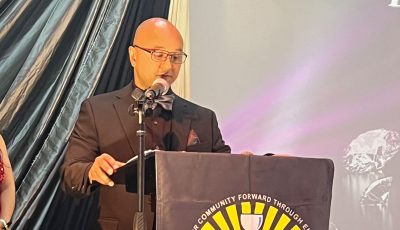Tracking system for CW permits
U.S. Citizenship and Immigration Services should have implemented a tracking system for CW1 permits issued each fiscal year, preventing abuses of the program, according to Rep. Angel A. Demapan (R-Saipan).
“Sometimes, the predicaments that we experience with the CW1 program are basically systemic in nature. We have cases where employers apply for permits but then after approval sometimes there’s no longer a need to bring the employee here anymore,” said Demapan.
CW1 permits, the CNMI-Only Transitional Worker Nonimmigrant visa program, are issued to foreign workers and allows them to work in the Commonwealth for a year. Employers renew their workers annually and the program would end on Dec. 31, 2019.
Demapan, a former chairman of the House Committee on Federal and Foreign Affairs, said there were previous cases where foreign laborers hired to work in the CNMI no longer pursue their employment once USCIS releases their permits.
“So these are CW1 slots that are, in the eyes of Homeland Security, are being utilized. The problem is, there’s no tracking system whether the actual body of the employee is here on the ground once the slot is approved,” said Demapan.
He added businesses are forced to temporarily send their employees home once the numerical limit is reached each fiscal year. The cap was hit twice early in 2016 and 2017.
“Now that we were able to see that there are slots that are pretty much being held in the air, these slots could have otherwise been diverted to employees who are undergoing the renewal process.”
“We stand to lose those slots to the detriment of other businesses. Now we are seeing employees that have been here for years having to exit because the slots are not available,” Demapan said.
Construction laborers who only work for six months or less is another predicament the CW1 visa program faces, said Demapan.
He added that once these construction workers go back to China, that again wastes the slots, which could have been used by other essential workers like those in the healthcare profession.
Demapan believes those in construction should fall under a different category in order not to use up the limited CW1 slots every fiscal year.



























